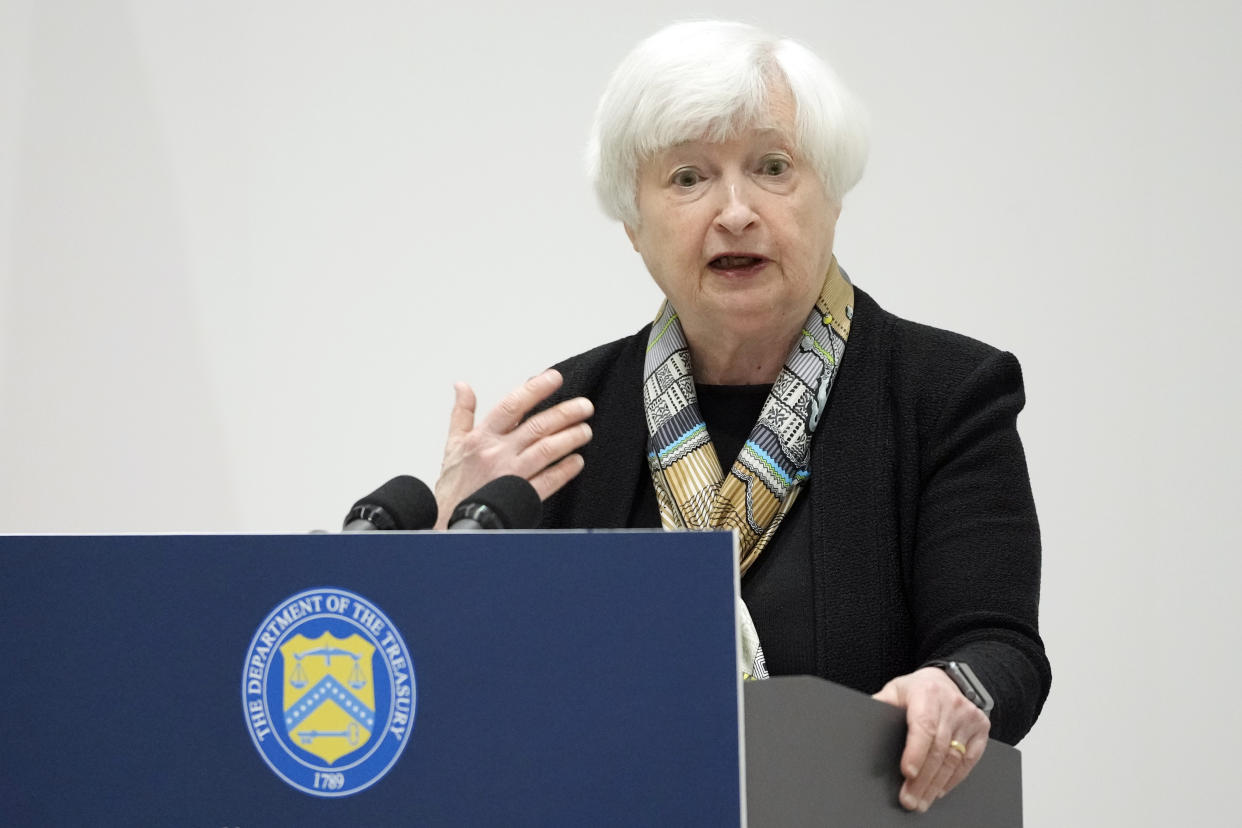Debt ceiling: Washington grapples with ‘hard choices’ if no deal is in place by June 1
Washington is publicly planning for what the world could look like on June 1 if no debt-ceiling deal is in place.
The immediate economic effects of the first-ever true default in American history are far from clear. They are being debated as negotiators remain divided across a range of issues.
Time is running low to strike a deal and then get it into law ahead of the key deadline just 10 days away. President Joe Biden and House Speaker Kevin McCarthy are meeting Monday at 5:30 pm ET for yet another round of talks.
Treasury Secretary Janet Yellen maintains that a deal needs to be reached and "it's not an acceptable situation for us to be unable to pay our bills."
Her first priorities if there is no deal by June 1 would include paying for interest on existing debt as well as making sure Social Security recipients and military employees get their checks on time, she said Sunday on NBC’s “Meet the Press.
“There will be hard choices to make about what bills go unpaid” if the talks fail or are too slow.
But there is a view in Washington among some Republican lawmakers that economic unrest could be limited initially. That was echoed Monday by Strategas Securities Managing Director Jeannette Lowe, who said Yellen's approach could mean June 1 "actually wouldn't be a real default."
If June 1 arrives with no deal, the government would then "maybe withhold payments to government contractors and that's where you could see a risk" especially for companies tied to sectors like defense and health care, Lowe said.
Stifel Chief Washington Policy Strategist Brian Gardner agrees with that view, while noting "the caveat that none of this has been tested."
He said in a separate interview there's a chance that an "X-date" on or around June 1 could arrive without a deal and "we may not get the bang that everyone is expecting" if politically and economically vital groups like bondholders, Social Security recipients and members of the military see no immediate interruption.
All bets would be off, of course, with a protracted default. The White House has said that would lead to a sharp recession and the stock market plummeting 45%.
GOP skepticism of the June 1 deadline
The debate over short-term effects comes after negotiations in Washington ground to a halt for large stretches over the weekend with both sides calling the other side unreasonable.
Negotiations were revived by a phone call Sunday between Biden and McCarthy,but the dynamic is being complicated by growing discontent from both the left and right flanks.
Biden tried to strike an upbeat tone late Sunday night, telling reporters as he returned from Asia that he monitored the latest round of negotiations and “it went well.”

The idea that June 1 may not be as hard a deadline as many fear is also being echoed by some Republicans, including one crucial moderate.
“There's something called a nontechnical default,” said Rep. Brian Fitzpatrick (R-PA) on CBS’s ‘Face the Nation’ suggesting an initial breach could lead to less dire economic scenarios if US Treasury bondholders are still being paid on time.
“The math tells us there is a little bit of wiggle room” to give the negotiators more time to operate, he added, quickly note that a downgrade of the US credit rating and market volatility remain ever-present risks.
His clear preference is a deal as soon as possible to take default off the table.
‘Some bills have to go unpaid’

Analysts at the Bipartisan Policy Center recently compiled a list of key government payments that could be at risk in early June, including $47 billion in Medicare payments due June 1 followed by $25 billion in Social Security checks scheduled for June 2.
Those payments are just a few of the billions upon billions that flow out of the Treasury each day to pay for things like veterans' benefits, federal salaries, tax refunds, Medicaid, government contractors and more.
Shai Akabas, the group’s director of economic policy, warned in a recent briefing with reporters that no matter what policymakers predict, things could get very unpredictable quickly if the X-date is breached.
“The steps that we could see in the aftermath of crossing the X date or some other extraordinary circumstances taking place I think will quickly be taken out of the hands of policymakers and put into the hands of market participants, investors, businesses, individuals in the economy,” he said.
Gardner also laid out in Monday's conversation myriad ways that a reaching an X-date could go sideways quickly. There are the questions of whether Treasury's systems would hold up and how investors would react in the face of an unprecedented default.
But if it comes to it, he says, "the level of political pressure will depend on who doesn't get paid."
Ben Werschkul is Washington correspondent for Yahoo Finance.
Click here for politics news related to business and money
Read the latest financial and business news from Yahoo Finance
